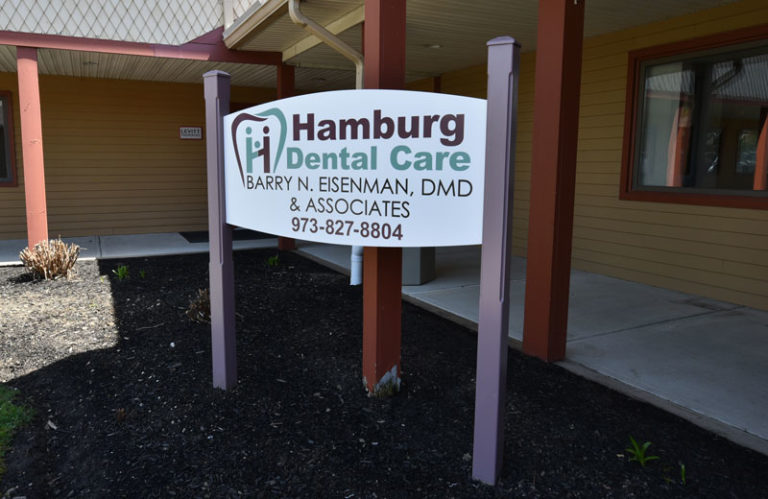Dental implants are a popular solution for tooth loss. They are the closest thing to once again having permanent teeth. Unfortunately, not everyone is a good candidate for dental implants. If you’re considering them, find out if dental implants are right for you.
What are Dental Implants and When Are They Necessary?
Dental implants are used to replace lost individual teeth, or as support for dental bridges or dentures.
If you have missing teeth, dental implants will help keep your bite healthy, keep other teeth from shifting, and keep your jawbone from weakening. Dentures or bridges can help maintain proper tooth alignment and solve many cosmetic problems. But they will not work to keep your jawbone healthy, nor will they offer the complete security and comfort that dental implants provide.
There are traditional dental implants and mini dental implants that work best in different situations.
Dental implant teeth replacements consist of a titanium post that is surgically inserted into the jawbone, a connector, and the upper porcelain portion.

Dental Implants Are the Optimal Tooth Loss Solution
Dental implants are an exceptional solution for tooth loss because they look, feel, and fit exactly like your original permanent teeth.
They also allow you to comfortably eat anything you want without worry about any embarrassment you may experience with dentures and partials.
Dental implants also provide important health benefits for your jaws and gums by preventing other teeth from shifting in your mouth and preventing bone loss.
And they’ll never develop cavities or need a filling!
Are Dental Implants Right for You?
With all the benefits of dental implants, you’re probably wondering if dental implants are right for you.
It’s true, dental implants are a favored solution for tooth loss. However, the procedure involves minor dental surgery, and can be a more expensive tooth replacement method.
Some dentists have dental treatment plans that can help make dental implants an affordable reality for you.
Your dentist or oral surgeon can definitively let you know if you are a good candidate for dental implants from a health perspective.
But, considering that dental implants often last a lifetime, and provide so many benefits, many people feel getting them is worthwhile.
Here are some general guidelines to help you determine if dental implants are a good choice for you.

Are You a Good Candidate for Dental Implants?
Today, most people can become excellent candidates for this modern tooth loss solution.
However, not everyone is immediately a good candidate for dental implant surgery—even though dental implant surgery is one of the safest types of oral surgeries.
Consider Your Health History
It’s important that you’re healthy enough to have routine oral surgery.
Some diseases which can affect healing, such as diabetes, leukemia, and certain autoimmune diseases, may make you a poor candidate. This is because you are more likely to develop an infection or complication from the implant surgery.
Your dentist or oral surgeon will assess your individual situation and let you know if you’re a good candidate.
If you have a serious case of teeth grinding, this too will need to be addressed before you get implants.

Your Medications Need to be Reviewed
Certain medications can contribute to complications from implant surgery.
They include:
- Medications that treat osteoporosis and other bone deterioration diseases
- Medications that interfere with anesthesia used during dental implant surgery
- Medications, such as steroids, that suppress the immune system
Be sure to let your dentist know all the medications you are taking, including over-the-counter pain relievers, before they schedule implant surgery.
Tobacco and alcohol use can also interfere with the healing process and contribute to implant rejection.
You Need a Healthy Jawbone and Gums
Your gums and jawbone must be healthy enough to successfully heal from dental surgery and to hold the dental implant securely.
The dental implant root is a sturdy base for the new tooth because it fuses with the jawbone through a process called osseointegration. Unhealthy gums or a damaged jawbone can interfere with the fusion process.
An unhealthy jawbone may not be dense enough or strong enough to hold a dental implant. Often a bone grafting procedure can solve this problem and implant surgery can be scheduled.
Imaging technology will determine the health of your jawbone and if you need bone grafting treatment.
If you have periodontal disease, you may have suffered a loss of gum tissue. This will weaken the implant’s stability and also increase the risk of post-surgery infection.
In many cases, gum treatments and a commitment on the patient’s part to keep gums healthy will overcome this obstacle.
Facial Development Must Be Complete
A dental implant cannot accommodate future changes to the size or shape of a jaw. Any changes will disrupt the implant’s stability and fit.
For this reason, implants aren’t recommended for patients younger than 18.

Seniors Are Great Candidates for Implants
Happily, there isn’t an age limit for getting dental implants. If you’re a senior who’s healthy enough to heal from dental implant surgery, and you meet other mentioned requirements, you’re probably a great candidate.
At Hamburg Dental Care, we offer many solutions for patients with missing teeth. We specialize in pain free dentistry and welcome patients of all ages. To make an appointment to see our dentist, Dr. Barry Eisenman, contact us now.




